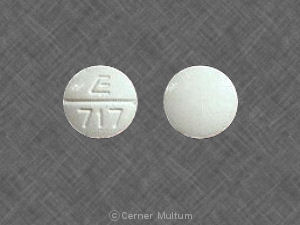What is Meprobamate?
Meprobamate affects chemicals in your brain that may become unbalanced and cause anxiety.
 Meprobamate is used to relieve anxiety, nervousness, and tension associated with anxiety disorders.
Meprobamate is used to relieve anxiety, nervousness, and tension associated with anxiety disorders.
Meprobamate may also be used for purposes other than those listed in this medication guide.
What is the most important information I should know about Meprobamate?
Use caution when driving, operating machinery, or performing other hazardous activities. Meprobamate may cause drowsiness, dizziness, and blurred vision. If you experience drowsiness, dizziness, or blurred vision, avoid these activities.
Use alcohol cautiously. Alcohol may increase drowsiness and dizziness while you are taking meprobamate.
Do not stop taking meprobamate suddenly if you have been taking it for several weeks. Stopping suddenly may cause withdrawal symptoms and make you uncomfortable. Talk to your doctor if you need to stop treatment with meprobamate.
Notify your doctor if you develop a fever, a skin rash, or a sore throat.
What should I discuss with my healthcare provider before taking Meprobamate?
Before taking this medication, tell your doctor if you have
- porphyria,
- kidney disease,
- liver disease,
- epilepsy or another seizure disorder, or
- a history of drug or alcohol abuse
You may not be able to take meprobamate, or you may require a lower dose or special monitoring during treatment if you have any of the conditions listed above.
Meprobamate may harm an unborn baby. Do not take this medication without first talking to your doctor if you are pregnant.
Meprobamate passes into breast milk. Do not take meprobamate without first talking to your doctor if you are breast-feeding a baby.
If you are over 60 years of age, you may be more likely to experience side effects from meprobamate. You may require a lower dose of this medication or special monitoring during treatment.
Meprobamate is not approved for use by children younger than 6 years of age.
Meprobamate Side Effects
What are the possible side effects of Meprobamate?
If you experience any of the following serious side effects, stop taking meprobamate and seek emergency medical attention:
- an allergic reaction (difficulty breathing; closing of your throat; swelling of your lips, face, or tongue; or hives)
- fast or irregular heartbeats
- abnormal behavior
- fever
- a skin rash; or
- a sore throat
Other, less serious side effects may be more likely to occur. Continue to take meprobamate and talk to your doctor if you experience
- drowsiness or dizziness,
- headache,
- weakness,
- vomiting or diarrhea, or
- numbness or tingling
Side effects other than those listed here may also occur. Talk to your doctor about any side effect that seems unusual or that is especially bothersome. You may report side effects to FDA at 1-800-FDA-1088.
Meprobamate Interactions
What other drugs affect Meprobamate?
Meprobamate may increase the effects of other drugs that cause drowsiness, including antidepressants, alcohol, antihistamines, sedatives (used to treat insomnia), pain relievers, other anxiety medicines, and muscle relaxants. Tell your doctor about all medicines that you are taking, and do not take any medicine unless your doctor approves.
Drugs other than those listed here may also interact with meprobamate. Talk to your doctor and pharmacist before taking any prescription or over-the-counter medicines.
What should I avoid while taking Meprobamate?
Use caution when driving, operating machinery, or performing other hazardous activities. Meprobamate may cause drowsiness, dizziness, and blurred vision. If you experience drowsiness, dizziness, or blurred vision, avoid these activities.
Use alcohol cautiously. Alcohol may increase drowsiness and dizziness while you are taking meprobamate.
Avoid other sedatives, sleeping pills, and tranquilizers. They should not be used while you are taking meprobamate unless your doctor approves.
Meprobamate Dosage
How should I take Meprobamate?
Take meprobamate exactly as directed by your doctor. If you do not understand these instructions, ask your pharmacist, nurse, or doctor to explain them to you.
Take each dose with a full glass of water.
Do not crush, chew, or open any of the tablets or capsules. Swallow them whole.
Do not take more of this medication than is prescribed for you.
Do not stop taking meprobamate suddenly if you have been taking it for several weeks. Stopping suddenly may cause withdrawal symptoms and make you uncomfortable. Talk to your doctor if you need to stop treatment with meprobamate.
Store meprobamate at room temperature away from moisture and heat.
What happens if I overdose on Meprobamate?
Seek emergency medical attention.
Symptoms of a meprobamate overdose include sleepiness, dizziness, confusion, a slow heartbeat, difficulty breathing, difficulty walking and talking, an appearance of being drunk, and unconsciousness.
What happens if I miss a dose of Meprobamate?
Take the missed dose as soon as you remember. However, if it is almost time for your next dose, skip the dose you missed and take only your next regularly scheduled dose. Do not take a double dose of this medication. A double dose could be very dangerous.
Edited from everydayhealth.com
